Survision: LPR - A Quiet Revolution for Airports
Understand how new LPR is helping solve some of the hardest challenges for these unique environments.
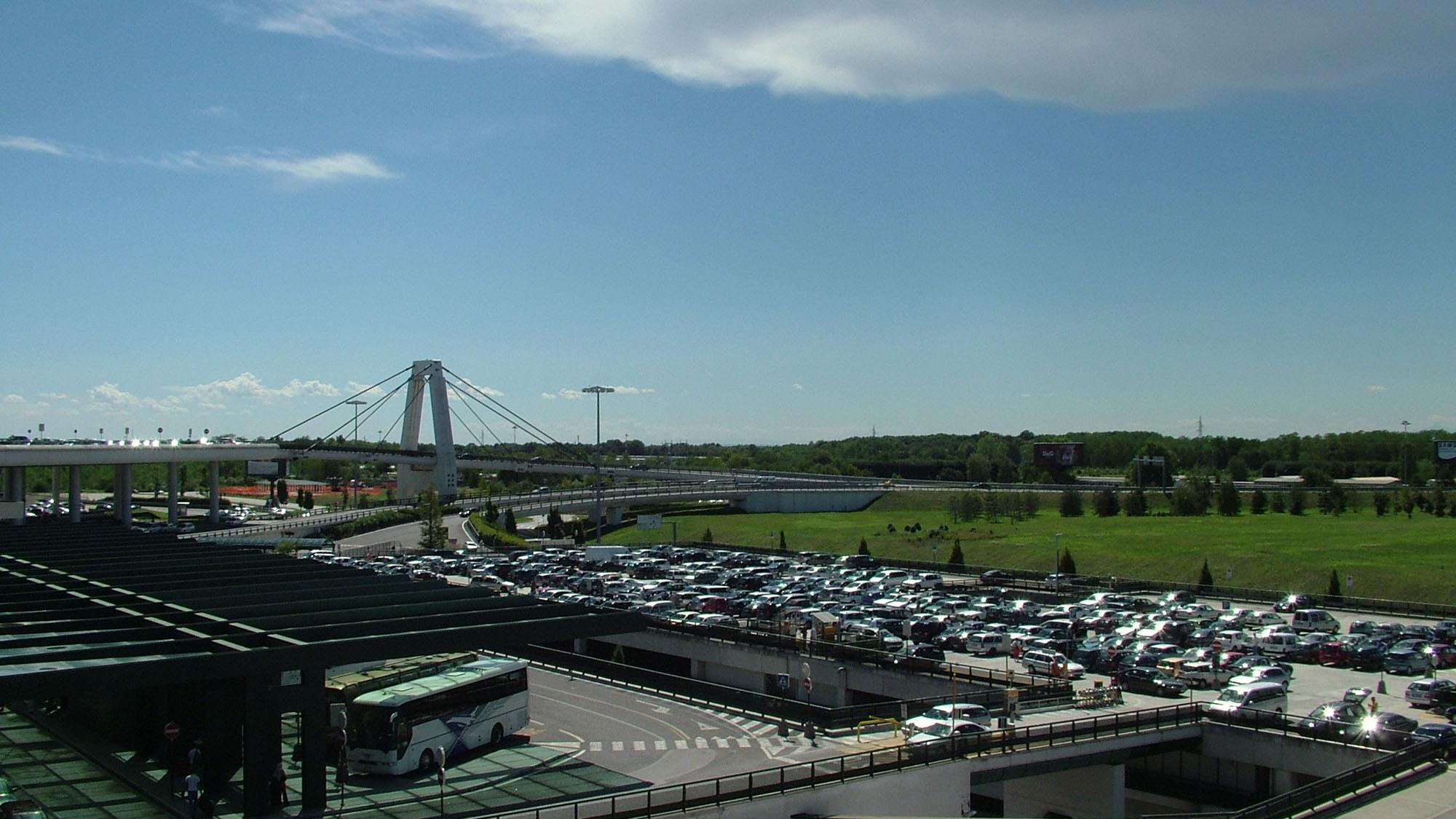
Airport parking presents a wide range of challenges for both customers and operators. Some are common to all parking lots, others are unique to airports, particularly large ones. Any disruption in vehicle flow, such as a small accident or mismanagement of parking spaces, can quickly escalate, causing delays that ripple through the entire airport system.
For customers, the main issues often revolve around access and convenience. Airport parking lots are typically crowded, with spaces difficult to find, particularly in high-demand areas close to terminals. Traffic congestion is common as passengers and commercial vehicles converge at peak times. This congestion often leads to (very) undesired delays... and a lot of stress.
Additionally, vehicle security is a growing concern for travelers who leave their cars unattended for extended periods. Theft, vandalism, fraud or damage are potential risks, and customers often lack clear guidance on safer parking practices or airport policies on the matter.
For operators, the challenges are centered around control and efficiency. Managing the high volume of passengers, taxis, employees, and providers' vehicles is a logistical hurdle. Ensuring proper vehicle access control so that only authorized vehicles enter or stay in specific areas is vital, and outdated systems can lead to logistic disasters... and a lot of stress!
Another critical issue is managing parking areas for employees and service providers. Ensuring they park in designated zones, adhere to schedules, and do not disrupt traffic flow requires constant supervision and advanced monitoring systems.
All point to one subject: the impossibility of knowing "who is doing what" in the parking lot.
So, How can LPR help Airports?
License Plate Recognition (LPR) involves capturing and digitalizing license plates in real time. This allows for the identification of vehicles as they enter or exit the lot and the association of these plates with users' data. LPR is then the “missing link” to digitizing everything related to vehicle access control operations at airports, creating a new level of “reality” regarding analysis, security and optimization capabilities.
How LPR changed Airports' Parking Management
One of LPR's most visible applications is its integration with Parking Revenue Management Systems (PARCS), which manage access, payment, and revenue collection for parking facilities.
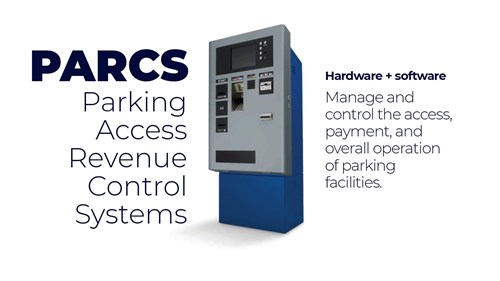
LPR technology helps PARCS to identify every vehicle at a deeper level, linking the car and its license plate to other data such as user information, times of entry and exit, vehicle location, etc, expanding its capabilities while significantly lowering operational costs.
The happy marriage between PARCS and LPR Cameras brings customers and operators a new world of benefits:
- Paper tickets and related hassles (printing costs, lost, damaged or false tickets) are gone forever.
- Fast exit lanes: LPR allows for the advance identification of frequent users (such as pre-paid or frequent parkers) as they approach the gate, opening the possibility of dedicated Free-Flow / Frictionless lanes for them and reducing congestion.
- Monthly subscriber management: LPR allows linking the license plate to user information, facilitating all identification and access processes for regular parkers.
- Accurate car counting: Thanks to LPR, real-time data on parking occupancy can be used for better space management. It also helps to prevent revenue loss from vehicles that try to bypass payment or exceed their allotted parking time.
- Convenient features: LPR cameras on each parking spot make services like "find my spot" and "find my car" possible, greatly enhancing user experience.
- Ticketless parking: LPR eliminates the need to use paper tickets, streamlining entry and exit for a smoother parking experience.
License Plate Inventory: Once the heaviest task, now a powerful tool, thanks to LPR
Due to the high vehicle volume in airports (passenger cars, taxis, ride-shares, shuttles, commercial delivery trucks, and employee vehicles), there is a critical need to manage a comprehensive, real-time database of all vehicles on the premises. This prevents security breaches and allows teams to take faster action when an abnormality is detected.
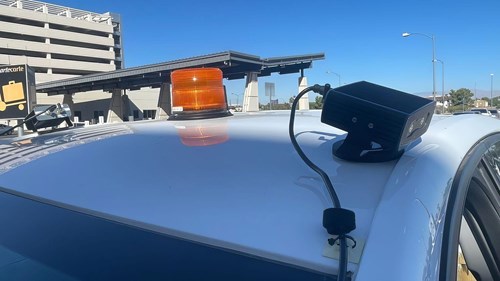
With a reliable License Plate Inventory (LPI), airports can enforce parking rules more effectively, ensuring employees, vendors, or passengers park in the right place and preventing the unauthorized use of parking spaces.
Travelers often leave their vehicles at airports for extended periods. A detailed license plate inventory helps operators keep track of long-term parkers, ensuring that cars aren’t abandoned or overstaying in areas where they shouldn’t be.
New License Plate Inventory systems use mobile and fixed LPR to help airport teams track and record every vehicle entering and exiting the premises almost in real time. This is a lot to say, considering the traditional methods airports used until a few years ago.
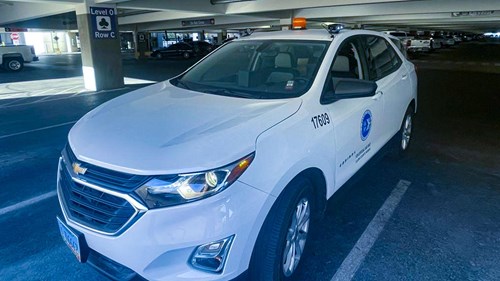
Las Vegas Harry Reid Airport used to have 15 on-foot agents performing their 4-hour LPI rounds to scan 7,100 parking spots; now, they complete the same task using 4 single-operator mobile LPR units along with Fixed LPR cameras on entries and exits.
Using the same technology, Charlotte Douglas International Airport went from 2-hour LPI rounds to 30 minutes to scan 6.000 parking spots. Also, Denver International Airport and Pittsburg Airport cut their LPI times in half just by switching to Mobile LPR-based LPI systems.
We don´t see these kinds of numbers in terms of efficiency increment every day; that is why we call it a "revolution."
Bringing order to Kiss & Fly chaos
Airports' Pick-Up and Drop-Off areas have been a nightmare for Airport operators. These zones were frequently congested with cars waiting for extended periods, causing traffic jams and increased pollution, particularly in underground areas.
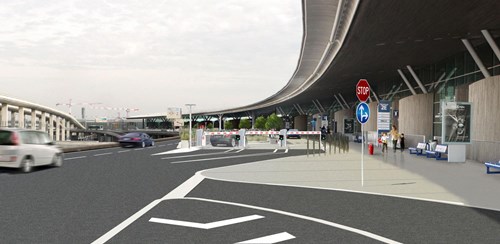
By recording all license plates on free-flow entries and gated exits, operators such as Paris Charles de Gaulle and Orly airports can now precisely enforce the free 10-minute parking time, automatically applying fees to vehicles that exceed it. This measure prevents bottlenecks, overstays and looping while allowing for faster entries and exits.
Streamlining Taxi and Rideshare
Airport and ridesharing operations often face congestion, inefficiency, and security concerns, resulting in long wait times, poor turnaround, and heightened security risks. Maintaining accurate vehicle counts, ensuring compliance with regulations, and providing real-time updates to drivers is a complex matter. LPR puts operators in control over every vehicle that enters and exits the lot, creating a smoother, more precise and safer experience:
- Real-time information: LED displays provide drivers with up-to-date information on available spots, time to destination, airline-specific zones, etc.
- Accurate vehicle counting: Helps manage the number of vehicles in the lot.
- Enforcement of regulations: LPR can identify and address vehicles on a "hot list."
When value is a matter of Accuracy: 'Time to Destination' Information
One of the main problems at airports is the uncertainty surrounding travel times from airport entry points to specific terminals. Traffic congestion, unclear routes, and delays often lead to missed flights or unnecessary anxiety.
Airports also struggle to manage their infrastructure efficiently, as traffic jams and bottlenecks at drop-off zones and parking facilities slow down operations in a domino effect.
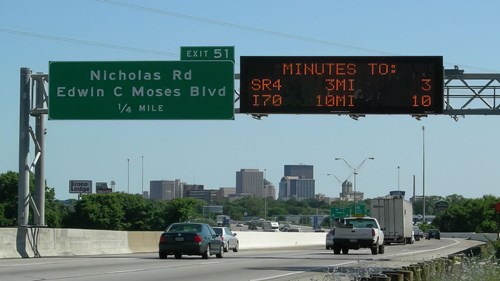
LPR technology addresses this issue by offering real-time, accurate travel information and AI-powered predictive analytics directly displayed on LEDS or online platforms. This leads to smoother traffic flow and helps passengers reach their terminals without the usual guesswork.
A Whole New Level of Control: LPR-based Traffic Management and Security
By leveraging traffic analysis, LPR provides valuable data on vehicle counts and origin-destination patterns. This information can be used to optimize traffic flow, allocate parking resources more effectively, and reduce bottlenecks, ensuring smooth operations.
From a security and law enforcement perspective, LPR technology identifies vehicles of interest, enabling real-time alerts and facilitating swift intervention when necessary, from live reporting to local police forces to aiding judicial investigations.
Regarding access control, LPR technology restricts vehicle access to sensitive areas, such as airport buildings, company premises, customs zones, and taxiways, creating creating a seamless, layered security protocol for employees and vehicles.
Fraud Prevention
Due to their size and traffic volume, airport parking lots are good places to perpetrate fraud; customers are often in a hurry or desperate to get to their destination, making it possible to fall into scams.

One of the most common forms of fraud is related to tickets. Customers could claim they “lost their ticket” to avoid paying the full fee. By eliminating paper tickets and monitoring exact entry times, LPR makes this type of fraud impossible.
Some fraudsters pose as official meet-and-greet or airport valet parking services, promising to park your vehicle securely but parking it in unauthorized locations instead. Some services claim to offer secure or premium parking while using unapproved or cheaper parking locations. Faster and more accurate LPR-based License Plate Inventory systems can help operators rapidly detect patterns and catch these fraudsters in action.
Another increasing fraud is related to Turo and similar businesses, where people park their rental cars for a much lower price because they get them out using tickets of newly parked vehicles. By associating the license plate with the ticket, LPR also makes these types of fraud impossible.
LPR in real life: How these airports are doing
Wrapping up
If you want to see everything that LPR can do for airports, visit Paris Charles de Gaulle (CDG) and Orly Airports, which have fully implemented Survision LPR technology, (notably) enhancing parking management and security.
Survision LPR cameras are currently at 60 airports and counting! Check them all.
Let's talk about how survision can optimize your Airport's Parking operation!
About SURVISION
SURVISION is a global leader in License Plate Reading (LPR). Since 2001, with solutions being deployed in over 50 countries with more than 50,000 cameras thanks to a network of 900 Value Added Integrators. The quality of its R&D team allows SURVISION to work with world-class integrators for a complete set of innovative solutions for Smart-City, Smart-Parking, law enforcement, toll road collection, car-park management, and for local authorities.






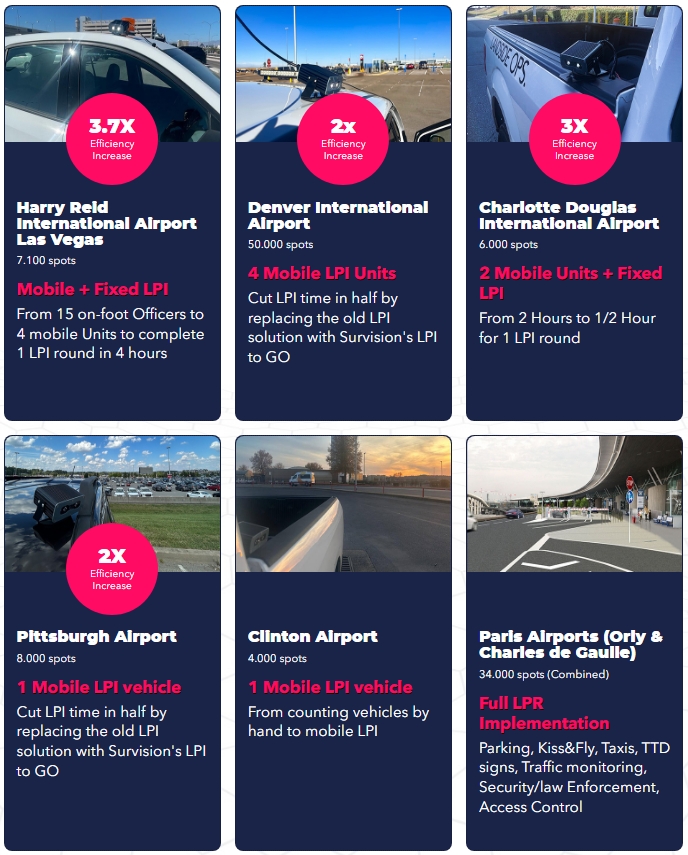

Comments
There are no comments yet for this item
Join the discussion